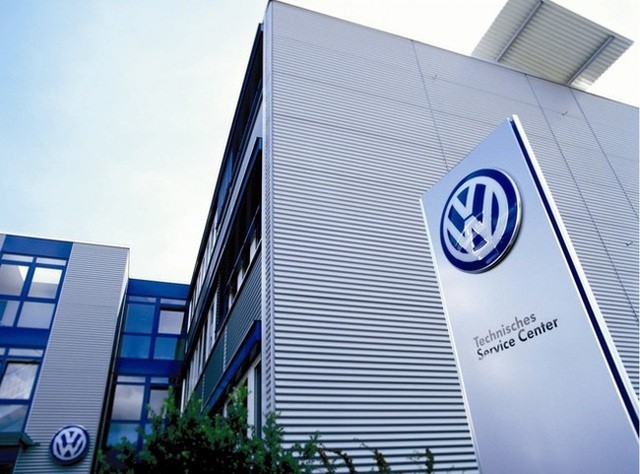Volkswagen AG: Driving Innovation and Sustainability in the Automotive Industry
Introduction:
Volkswagen AG, commonly known as VW, is a global automotive giant that has left an indelible mark on the industry for decades. Headquartered in Wolfsburg, Germany, the company has evolved from its humble beginnings in the aftermath of World War II to become one of the world's leading automotive manufacturers. This article explores the rich history, key milestones, corporate strategies, and the future trajectory of Volkswagen AG.
Historical Evolution:
The roots of Volkswagen AG can be traced back to 1937 when the German Labour Front established the company to manufacture an affordable car for the masses. This vision culminated in the creation of the iconic Volkswagen Beetle, which became a symbol of post-war reconstruction and economic recovery. The Beetle's distinctive design and reliable performance contributed to its global popularity, making it one of the best-selling cars of all time.
However, the company faced challenges in the latter part of the 20th century, with issues ranging from economic downturns to internal management struggles. In the early 2000s, Volkswagen underwent a significant transformation under the leadership of Martin Winterkorn. The company shifted its focus to innovation, quality, and sustainability, setting the stage for a new era in its corporate history.
Key Milestones:
Global Expansion and Market Presence: Volkswagen AG has established a formidable global presence with manufacturing facilities and sales operations in numerous countries. The acquisition of iconic brands such as Audi, Porsche, and Bentley has expanded the company's market reach, catering to a diverse customer base with a wide range of vehicle offerings.
Technological Advancements: Volkswagen has consistently been at the forefront of automotive innovation. The development of the Modular Transverse Toolkit (MQB) and Modular Longitudinal Toolkit (MLB) platforms has allowed the company to standardize components across various models, enhancing efficiency and flexibility in production. Moreover, Volkswagen has been a pioneer in the development of electric and hybrid vehicles, aligning with the global shift towards sustainable mobility.
Environmental Stewardship: Recognizing the environmental impact of the automotive industry, Volkswagen AG has been actively working towards sustainability. The company has set ambitious goals, including becoming carbon-neutral by 2050 and introducing a fleet of electric vehicles. The commitment to sustainability is evident in initiatives such as the "Think Blue" campaign, which promotes environmentally friendly practices in manufacturing and driving.
Corporate Strategies:
E-Mobility and Sustainable Practices: In response to the growing concern over climate change and environmental sustainability, Volkswagen AG has placed a significant emphasis on electrification and e-mobility. The company's ID. series, featuring electric vehicles with cutting-edge technology and design, reflects Volkswagen's commitment to a sustainable future. The development of a comprehensive charging infrastructure further supports the transition to electric mobility.
Digitalization and Connectivity: Volkswagen has embraced the digital age, incorporating advanced technologies and connectivity features into its vehicles. The implementation of the Volkswagen Digital Cockpit, Car-Net, and other smart technologies enhances the overall driving experience. The company's foray into autonomous driving and artificial intelligence showcases its dedication to staying at the forefront of technological innovation.
Partnerships and Collaborations: Recognizing the complexity of the automotive industry, Volkswagen has strategically entered into partnerships and collaborations to foster innovation. Collaborative efforts with technology companies, startups, and research institutions have resulted in breakthroughs in areas such as autonomous driving, artificial intelligence, and advanced manufacturing processes.
Challenges and Controversies:
Despite its successes, Volkswagen AG has faced its fair share of challenges and controversies. One of the most significant setbacks was the "Dieselgate" scandal in 2015, where the company admitted to installing software in millions of diesel vehicles to cheat emissions tests. The scandal not only tarnished Volkswagen's reputation but also led to substantial financial penalties and legal repercussions.
In response, Volkswagen has implemented extensive reforms, focusing on transparency, ethical practices, and a shift towards electric vehicles to regain public trust. The company's ability to rebound from such challenges highlights its resilience and commitment to learning from past mistakes.
Future Outlook:
As Volkswagen AG navigates the ever-evolving automotive landscape, its future outlook is shaped by several key factors.
Electric Mobility Dominance: With increasing global emphasis on reducing carbon emissions, electric mobility is set to play a pivotal role in the automotive industry. Volkswagen's aggressive pursuit of electric vehicles positions the company to capitalize on the growing demand for clean and sustainable transportation.
Autonomous Driving and Connectivity: The development of autonomous driving capabilities and enhanced connectivity features will redefine the automotive experience. Volkswagen's investments in these areas demonstrate a commitment to staying at the forefront of technological advancements and providing customers with state-of-the-art driving experiences.
Global Economic Trends: Economic shifts, geopolitical factors, and global market dynamics will continue to influence Volkswagen AG's performance. Adapting to changing consumer preferences, economic conditions, and trade policies will be crucial for sustaining growth and competitiveness.
Regulatory Environment: Stringent emissions regulations, evolving safety standards, and government policies will significantly impact the automotive industry. Volkswagen's proactive approach to environmental regulations and sustainability goals positions the company to navigate regulatory challenges successfully.
Conclusion:
Volkswagen AG's journey from the inception of the Beetle to its current position as a global automotive powerhouse is a testament to its resilience, adaptability, and commitment to innovation. Despite facing challenges and controversies, the company has embraced change, leading the way in electric mobility, digitalization, and sustainable practices.
As Volkswagen AG looks towards the future, its focus on environmental stewardship, technological advancements, and global partnerships positions it to remain a driving force in the automotive industry. The ongoing transformation reflects not only the company's commitment to meeting the demands of a changing world but also its dedication to shaping the future of mobility with a sustainable and innovative approach.




